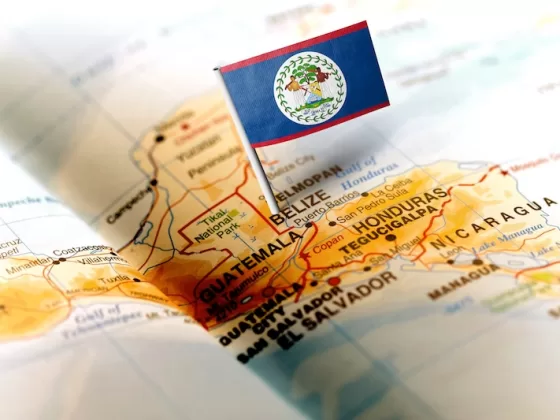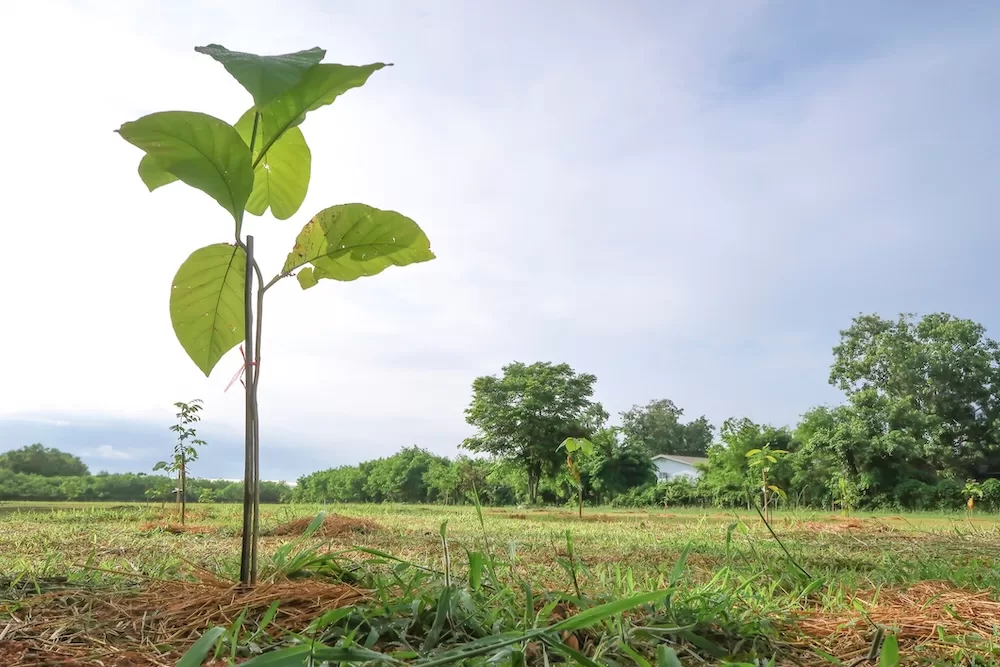In January 2024, at the snowy gathering of the world’s elite in Davos, Switzerland, a figure who embodies both disruption and controversy took the stage, capturing the attention of global leaders, economists, and media alike. President Javier Milei of Argentina, with his distinctive mane of hair and unapologetic libertarian views, delivered a fiery address that reverberated far beyond the alpine town.
Milei, a self-described “anarcho-capitalist,” ascended to Argentina’s presidency on a platform that contrasts with the political norms that have long dominated Latin American politics. His presence at the World Economic Forum was not just a debut on the international stage but a bold assertion of his radical economic and political philosophies.
Milei’s speech, a blend of dire warnings and audacious proposals, centered on a vehement rejection of socialism and a passionate plea for the adoption of free-market capitalism as the antidote to global poverty and economic stagnation. This address, coming from the leader of a nation grappling with profound economic challenges, including a staggering inflation rate and widespread poverty, underscored his support for drastic policy shifts aimed at revitalizing Argentina’s economy.
As the ripples of Milei’s words spread, reactions from pundits, policy-makers, and the public have painted a complex picture of support, skepticism, and intrigue. His proposals, including dollarization of the Argentine economy, abolition of the central bank, and privatization of state functions, signal a potential seismic shift in Argentina’s policy direction and the broader economic discussions in Latin America. This article explores the critical points of Milei’s Davos speech, dissects their implications for Argentina, and assesses their potential impact on Latin America’s economic and political landscape.
1. Urgent Call Against Socialism: Milei’s Warning and Its Resonance
In his first significant foray onto the international stage at Davos 2024, Argentine President Javier Milei issued a stark warning against the perils of socialism, positioning it as a direct threat to the prosperity and foundational values of the Western world. Milei’s critique wasn’t just rhetoric but a clarion call for a global reevaluation of economic ideologies. He passionately argued that socialism inexorably leads to poverty, urging leaders to embrace free enterprise capitalism as the only viable path to eradicating global poverty and fostering economic freedom.
Milei’s assertions come at a critical time for Argentina, a country besieged by economic challenges, including an unprecedented inflation rate surpassing 211% and a poverty rate affecting nearly 40% of its population. By highlighting these struggles, Milei seeks to underscore the dire consequences of socialist policies and advocate for what he views as the only remedy: a radical shift towards free-market principles.
“Today, I’m here to tell you that the Western world is in danger,” Milei asserted, highlighting the critical junction at which global leaders stand. He further elaborated, “And it is in danger because those who are supposed to defend the values of the West are co-opted by a vision of the world that inexorably leads to socialism, and thereby to poverty.”
His speech resonated with many, yet it also sparked debate among economists, policymakers, and the public, with critics questioning the feasibility and potential social impact of his proposed measures. Despite divergent views, Milei’s address in Davos undeniably put the spotlight on the urgent need for economic reform, not just in Argentina but across Latin America, signaling a potential shift in the region’s political and economic discourse.
2. Advocacy for Capitalism: Milei’s Clarion Call to Latin America
At the heart of Javier Milei’s address to the World Economic Forum in Davos was a robust defense of free enterprise capitalism as the indispensable mechanism for lifting societies out of poverty and ensuring global prosperity. Milei didn’t just advocate for capitalism; he presented it as the antithesis of socialism’s failures, which he argued have led countries down the path of economic ruin and societal despair.
“Far from being the cause of our problems, free-trade capitalism, as an economic system, is the only instrument we have to end hunger and poverty,” Milei asserted, challenging the global elite to reconsider their approach to economic policy. He criticized the shift towards collectivism, emphasizing that it has historically resulted in diminished freedoms and economic stagnation.
Milei highlighted that the adoption of capitalism is not merely an economic choice but a moral imperative, “The strongest argument is that capitalism is the only tool to end hunger and poverty in the world,” reflecting his belief in capitalism’s role as a catalyst for not just economic, but also moral and social advancement.
His advocacy goes beyond theoretical discourse, proposing a practical roadmap for Argentina’s recovery and, by extension, a model for other nations grappling with similar crises. Milei’s vision for a capitalist revival is clear: he sees it as the foundation for a future where freedom and prosperity can flourish.
3. Critique of Davos’ Agenda: Milei’s Standpoint
Javier Milei’s appearance at the Davos World Economic Forum in 2024 was marked by his fervent advocacy for capitalism and his pointed critique of the forum’s agenda, which he perceives as being significantly influenced by socialist ideologies. Milei’s comments reflect a deep-seated skepticism towards the prevailing discourse at Davos, which he believes leans too heavily towards collectivist and socialist policies at the expense of individual liberty and economic freedom.
In the lead-up to the forum, Milei did not mince words, openly criticizing what he described as the “socialist agenda” of the World Economic Forum. “Traveling via commercial jet to the Swiss resort town, Milei criticized Davos for what he perceived to be its ‘socialist agenda, which will only bring misery to the world,‘” reported Reuters. This statement encapsulates his overarching concern that the forum has strayed from fostering genuine dialogue on economic prosperity and freedom, veering instead towards discussions that favor government intervention and control.
Milei’s challenge to the Davos status quo is emblematic of his broader mission to seed ideas of liberty in environments he believes are “contaminated” by a bias towards socialism. Asked by reporters on his flight about his plans at Davos, he said he aimed to ‘seed ideas of freedom in a forum contaminated by the socialist agenda,‘” reflecting his intent to infuse the discussions with a fresh perspective centered on the merits of free-market principles.
Through his critique, Milei positioned himself as a contrarian voice within the forum and sought to ignite a broader reconsideration of the economic models and policies that guide global governance and development. His stance at Davos, underscored by direct criticisms and a call for a return to capitalist values, marks a significant moment of dissent within a gathering traditionally seen as a confluence of the world’s political and economic elite.
4. Evidence from Argentina’s Crisis: Milei’s Call for Radical Change
Javier Milei’s speech at the World Economic Forum in Davos was not just a platform for advocating his economic ideologies but also an opportunity to present Argentina’s ongoing economic crisis as a cautionary tale of socialist policies gone awry. By citing Argentina’s spiraling inflation, which has soared to one of the highest rates globally, and the deepening poverty affecting millions of Argentines, Milei aimed to underscore the urgent need for a paradigm shift toward his proposed economic reforms.
Milei painted a grim picture of Argentina’s economic landscape, marred by “an annual inflation rate of more than 211%, its highest level in 32 years, while 2 in 5 Argentines now live in poverty.” These figures highlight the severity of the crisis and serve as a critical backdrop for Milei’s call to action. He argued that the country’s dire economic condition directly results from decades-long adherence to socialist principles and government overreach, which have stifled economic growth and innovation.
By proposing radical reforms such as the dollarization of the economy, the abolition of the central bank, and the privatization of pensions, Milei positioned these measures as necessary to halt the cycle of economic mismanagement and restore financial stability. His critique of socialism and inflation in Argentina is intended to serve as both a warning and a guide for how other nations might avoid similar fates.
Milei’s discourse at Davos was a deliberate effort to leverage Argentina’s economic turmoil as empirical evidence supporting his thesis that socialism and excessive government intervention are antithetical to prosperity. He posits that embracing free-market capitalism and implementing his bold reforms are the only paths to rejuvenate Argentina’s economy and, by extension, offer a blueprint for economic success to other countries grappling with similar challenges.
In doing so, Milei seeks to reshape Argentina’s economic policies and influence the global debate on the merits of capitalism versus socialism, using Argentina’s crisis as a pivotal case study in this ongoing ideological struggle.
Conclusion
Javier Milei’s emphatic address at the World Economic Forum in Davos has cast a spotlight on Argentina’s precarious economic position and positioned the country as a pivotal case study for Latin America. His critique of socialism and advocacy for radical free-market reforms resonate beyond Argentina, touching on a nerve that runs deep across the continent and, indeed, the world, where many nations are similarly entangled in the web of economic stagnation and policy-induced crises.
Milei’s propositions and the vivid portrayal of Argentina’s woes serve as both a caution and a beacon for other countries. They prompt a reevaluation of the efficacy of Western-influenced socialist policies that have historically dominated political and economic landscapes. The traction his ideas gain, coupled with the outcomes of his proposed reforms—should they be implemented—will likely influence policy dialogues and economic strategies across Latin America and the world.
For countries teetering on the brink of economic turmoil or those entrenched in the inertia of socialist-leaning policies like the United States and Canada, Argentina’s journey under Milei’s stewardship might offer valuable lessons. It could herald a shift towards more market-oriented reforms or, alternatively, serve as a cautionary tale about the complexities and challenges of implementing such drastic economic policies.
As Latin America stands at a crossroads, Milei’s audacious stance at Davos could catalyze a broader continental shift towards reimagining the role of government in the economy. The reverberations of his speech may well inspire a new era of economic thinking and policymaking, sparking debates on the balance between market freedom and social welfare in the quest for prosperity and stability.
If you’re considering traveling or moving abroad, be sure to explore your healthcare options. Visit International Citizens Insurance to learn more and get a free quote.










